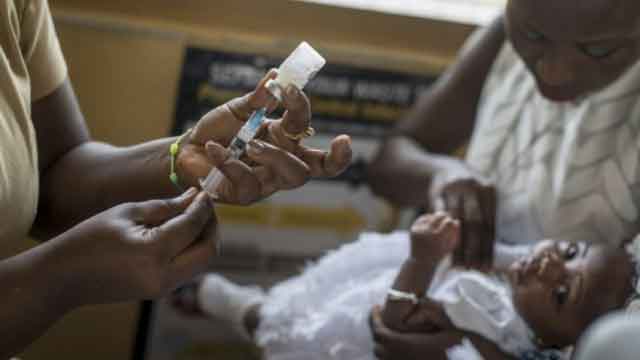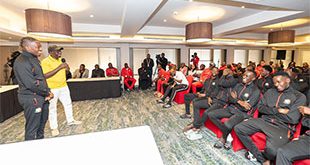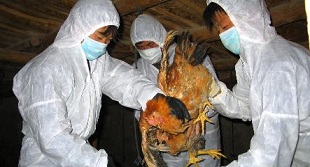
Cape Coast, Ghana | AFP | Abigal Aguanyi, a trader and mother in the West African nation of Ghana, knows first-hand how dangerous malaria can be — her two-year-old niece nearly died from it.
So when she heard that a new vaccine was being rolled out against the disease, that across the world kills a child every two minutes, she was one of the first to sign up her baby daughter.
The World Health Organization (WHO) says 219 million people were infected with malaria in 2017, more than 90 percent of cases occurred in Africa.
In Ghana alone, there were 5.5 million confirmed cases of malaria last year, and many more suspected.
Six-month-old Blessing, Aguanyi’s daughter, has received the first injection, like 360,000 other under two-years-old in Ghana, Malawi and Kenya, the three countries taking part in the landmark vaccine campaign.
Children are especially at risk from the deadly mosquito-born disease and babies were Ghana’s first vaccine recipients last month in the southern town of Cape Coast, 150 kilometres (90 miles) west of the capital, Accra.
Blessing will have three further doses up to the age of two under the programme, which will enable health officials to evaluate the vaccine’s effectiveness.
Aguanyi said that she would urge other parents to bring their children for the free jab.
“Because of money constraints, some wait till their child’s situation is critical,” Aguanyi said.
“When they bring them to the hospital, the child will be very weak, or even die.”
– 30 years of research –
Known by its lab initials RTS,S, the vaccine is the result of more than three decades of development and almost $1 billion (890 million euros) in investment.
It has been developed by British pharmaceutical giant GlaxoSmithKline in partnership with the PATH Malaria Vaccine Initiative and financed by the Gavi public-private global health partnership.
The vaccine is an additional tool in the fight against malaria, but does not represent a magic bullet.
It was found to prevent approximately four out of 10 malaria cases, according to the WHO, which supports Ghana’s health ministry in rolling out the vaccine.
Traditional preventive measures remain crucial, such as sleeping under treated bed nets, spraying rooms with insecticide and eliminating pools of stagnant water beloved by mosquitoes for breeding.
For the medics who see daily the impact of malaria on children, the vaccine is a big step forward.
– ‘Keeping Africa poor’ –
Ellen Apraku, a nurse, explained to waiting parents when to come back for the remaining injections.
She and her medical colleagues voiced hopes that the vaccine could one day replicate the success of the polio vaccine.
“I hope this will help us to be able to eliminate malaria, so Ghana can be a malaria-free country,” said Justice Arthur, the doctor running the Cape Coast clinic.
If the campaign is widened out, it will be a good starting point for child immunisation and a means for medics to help prevent the infection of parents too, the doctor said.
Sabina Atta also brought her six-month-old daughter Susanna for vaccination.
“If we prevent it from the start, it will help,” she said.
Malaria killed 435,000 people worldwide in 2017, according to the WHO.
“Malaria is one of the oldest documented, most devastating maladies in our history,” said Owen Kaluwa, Ghana’s WHO chief.
“We, in Africa, bear the brunt of its toll.”
Malaria is spread to people by mosquitoes, which transfer the parasite while sucking blood from humans.
“The disease saps our productivity and prosperity,” Kaluwa said. “It keeps our people in poverty.”
 The Independent Uganda: You get the Truth we Pay the Price
The Independent Uganda: You get the Truth we Pay the Price



